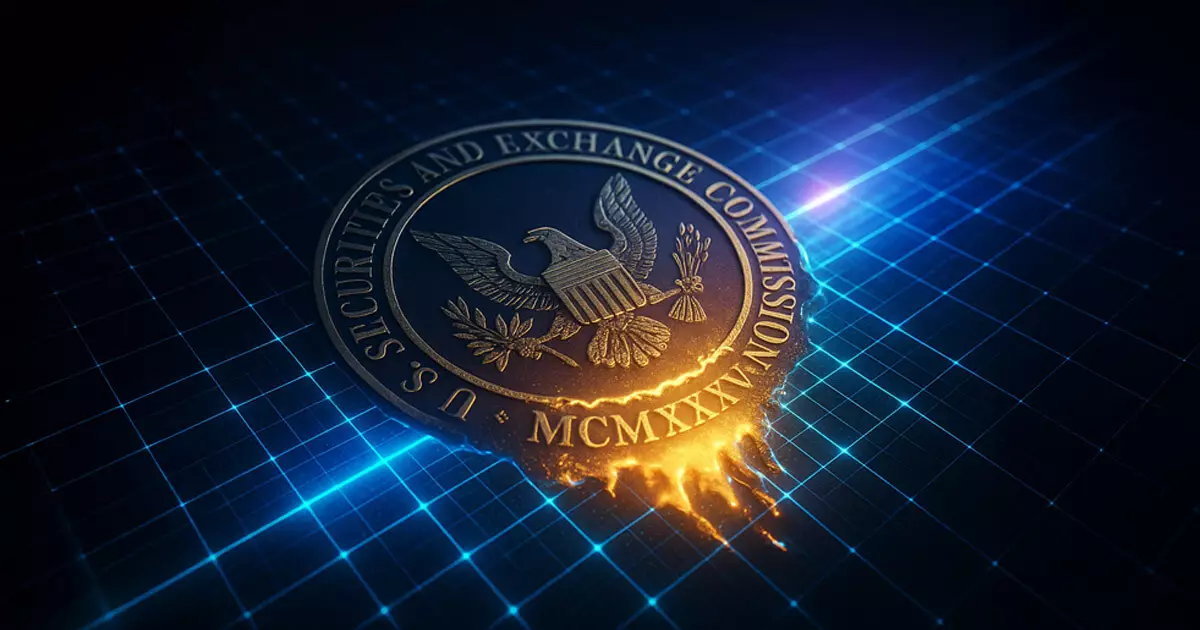In what can only be described as a dramatic pivot, the US Securities and Exchange Commission (SEC) has retracted 14 proposed regulatory maneuvers, including significant measures aimed squarely at the cryptocurrency sector. This decision, announced on June 12, highlights a refreshing re-calibration of the agency’s regulatory framework—one that seemed overly zealous under previous leadership. The rescinded proposals, which emerged from the tenure of former SEC Chair Gary Gensler between March 2022 and November 2023, were met with widespread resistance from advocates within the crypto community who feared suffocating oversight.
Among the more contentious proposals was an effort to redefine securities exchanges, which would have captured decentralized finance (DeFi) platforms under heavy SEC scrutiny. By classifying these innovative blockchain-based systems as “exchanges,” the SEC would have effectively stifled a burgeoning sector known for its transformational potential. Much to the relief of industry proponents, this rule was ultimately withdrawn.
The Custody Rule: An Overreach Reconsidered
Another rule that met with derision sought to impose stringent custody requirements on investment advisers handling digital assets. Advocates argued that this regulation would have rendered established crypto custodians—who have played a vital role in adapting to the needs of modern investors—virtually ineligible, leaving only traditional banks in command of client asset storage. Eleano Terret, a former Fox Business journalist, aptly highlighted the far-reaching implications of these regulations, emphasizing concerns over what it means to be a “qualified custodian” in an age where digital assets are increasingly mainstream.
These proposed rules, rather than fostering safety and accountability, were more likely to undermine innovation by pushing crypto businesses overseas where regulations are less suffocating. We found ourselves on the brink of a regulatory apocalypse, one that could undermine the competitive edge that American financial markets hold.
A Warm Embrace for Responsible Innovation
The SEC’s recent withdrawal of these excessive regulations indicates a broader recognition of the accessible future that cryptocurrencies present. This is not merely a retreat from overregulation but a thoughtful acknowledgment fueled by the realities of digital finance. New SEC Chair Paul Atkins appears to adopt a more progressive approach, intending to carve out an environment where responsible innovation can thrive. His appointment signals hope for a more balanced regulatory posture—one that neither coddles nor punishes but rather encourages evolution within the quickly evolving crypto space.
As the SEC begins to phase out the regulation-by-enforcement model that characterized Gensler’s approach, there’s an increasing expectation that the agency will strive to create an even playing field for both traditional finance and the burgeoning digital asset market. The recent dropping of lawsuits against various crypto companies serves as a clear indicator of this newfound leniency and pragmatism.
In a world where financial technology continuously evolves, the SEC’s decisive shift is both timely and necessary. By laying down the blunt regulatory hammer, the agency risks stifling an industry ripe with potential. The economic implications are profound—understanding how crypto will fit into financial markets is essential as society pushes toward greater digitization. Thus, this regulatory turn should not just be viewed as benevolence but as an imperative strategy to maintain America’s leadership in global finance.


Leave a Reply